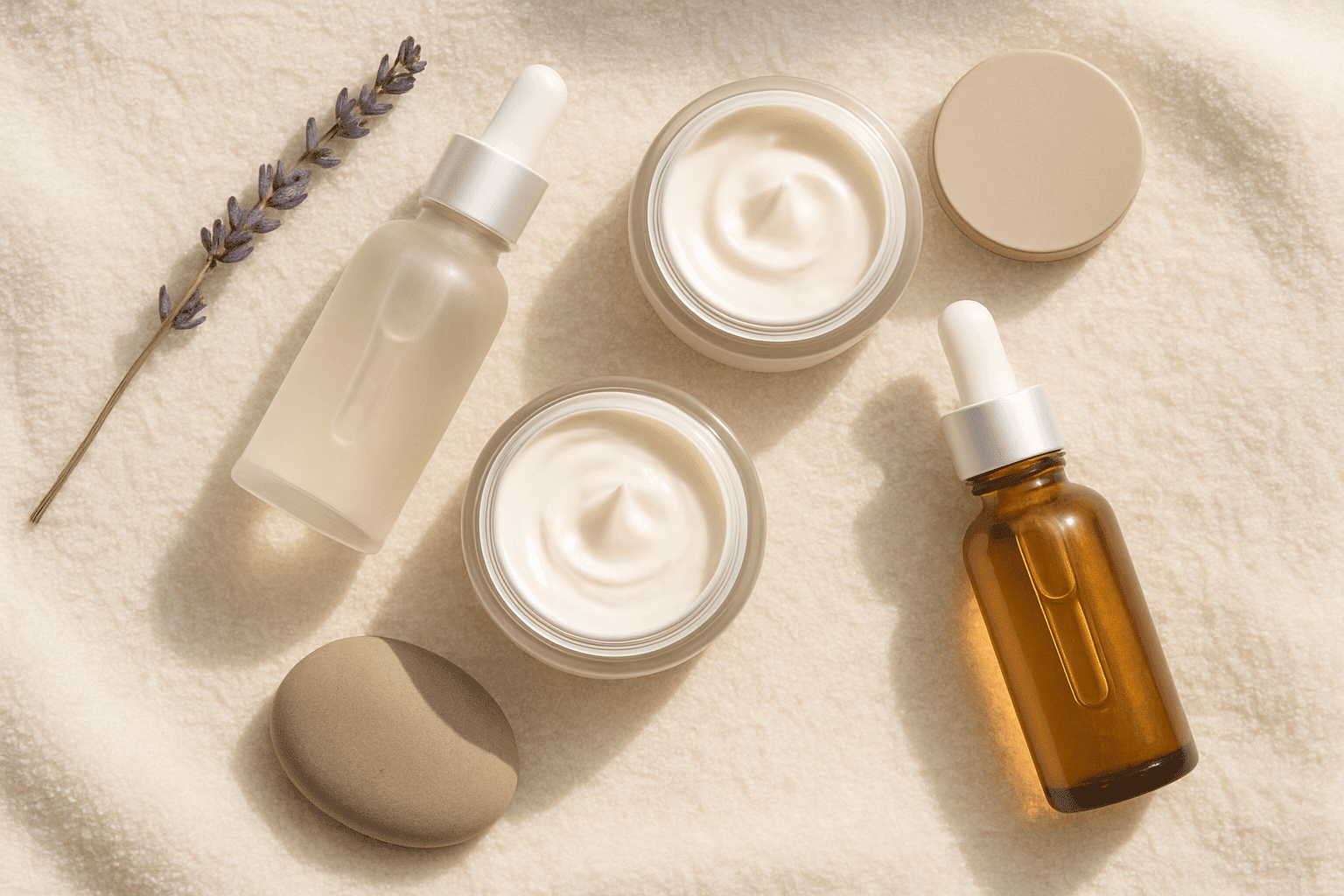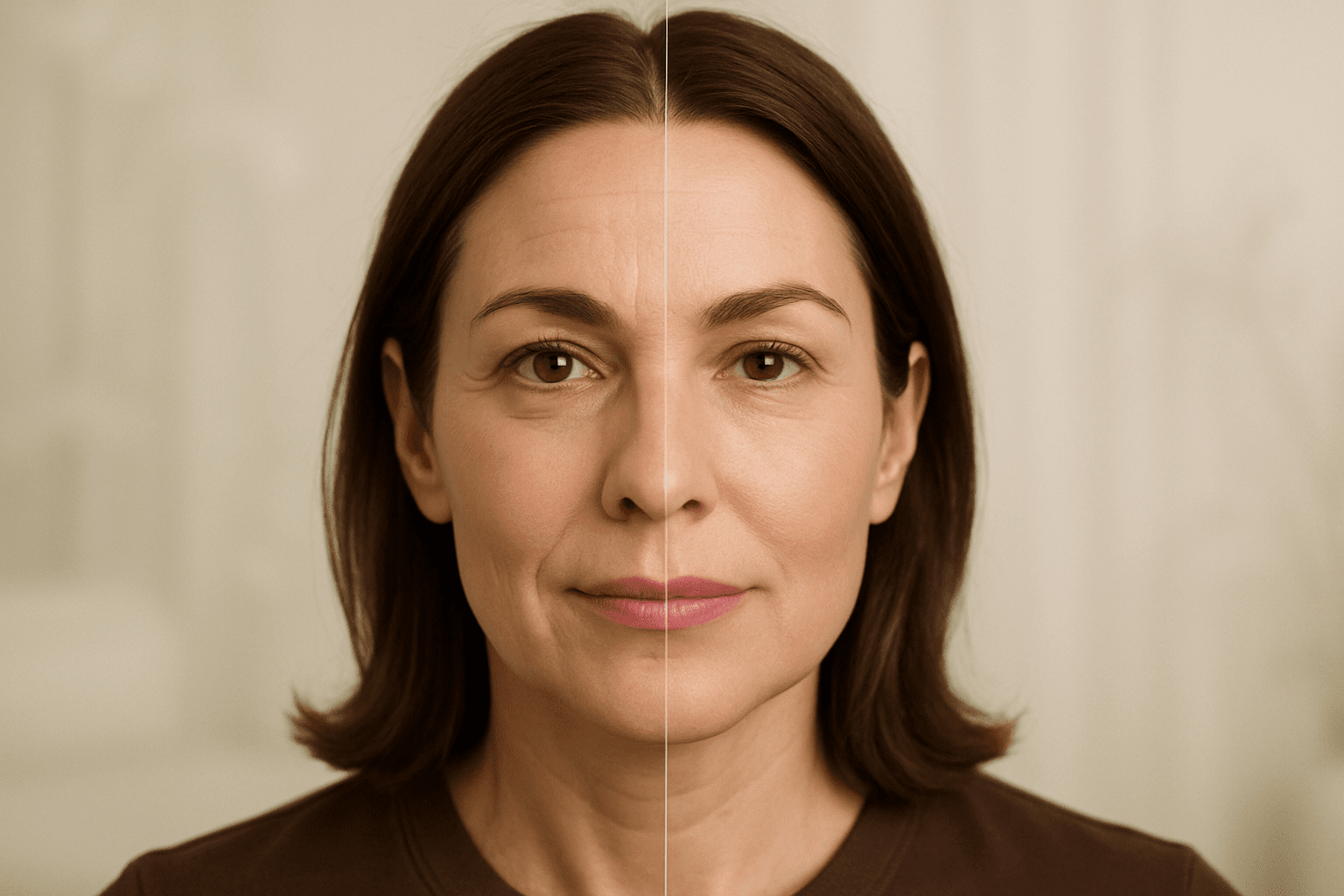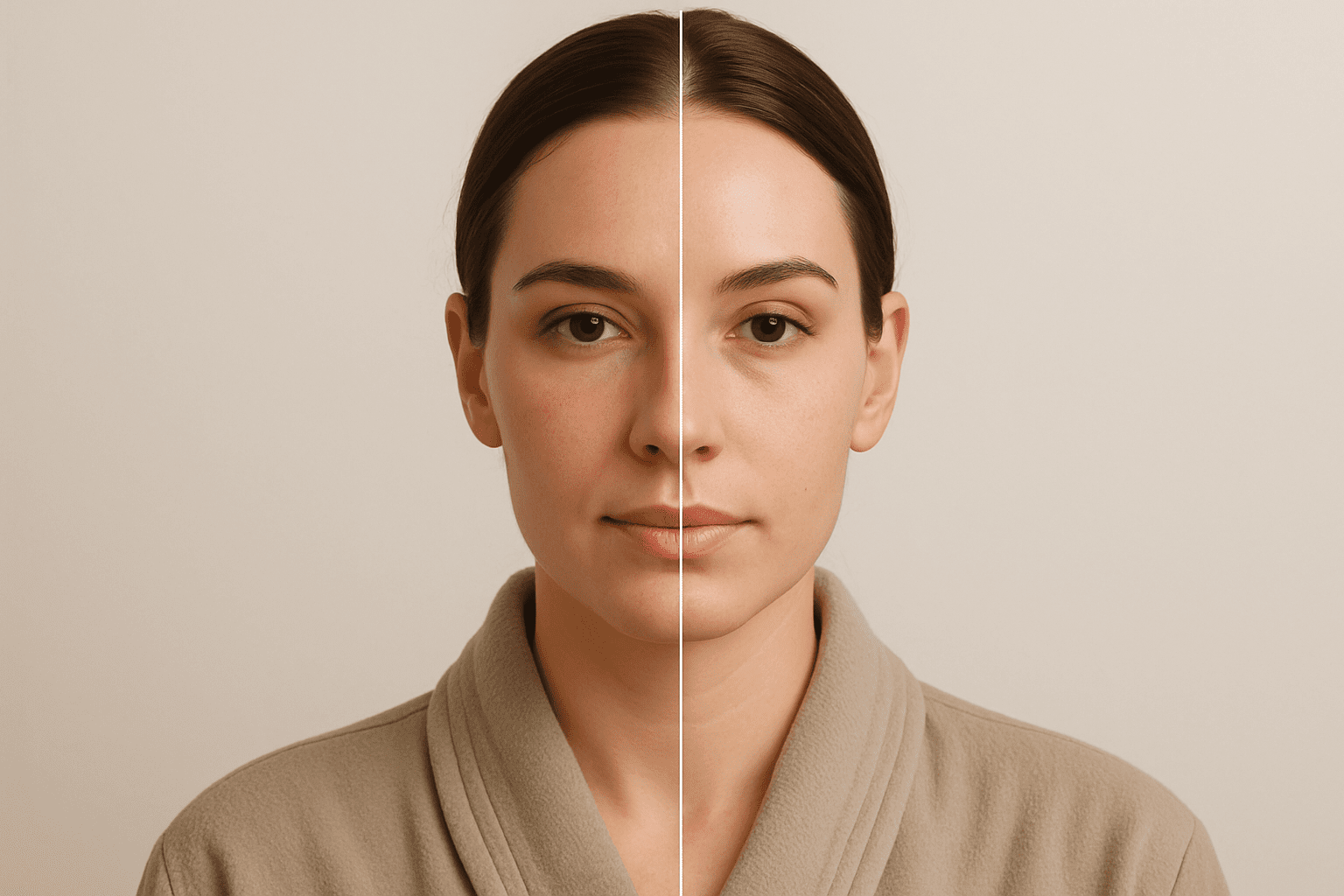If you’re building an effective anti-aging skincare routine, antioxidants should be a top priority. These powerhouse ingredients go beyond hydration and exfoliation—they defend your skin at the cellular level, helping to prevent damage before it starts.
In this guide, we’ll break down the science behind antioxidants in anti-aging skincare, explain how they work, and show you which ones are worth adding to your daily regimen.
Jump To:
TLDR Quick Guide
- Antioxidants protect skin from environmental damage and premature aging
- They neutralize free radicals that break down collagen and elastin
- Vitamin C, E, Niacinamide, and Ferulic Acid are top ingredients to look for
- Regular use can reduce fine lines, dark spots, and dullness
- Best when used in serums or moisturizers with SPF
What Are Antioxidants?
Antioxidants are molecules that neutralize free radicals, which are unstable compounds caused by sun exposure, pollution, stress, and even poor diet. When left unchecked, free radicals can lead to:
- Collagen breakdown
- Wrinkles and fine lines
- Hyperpigmentation and sunspots
- Loss of elasticity and uneven skin tone
By stopping free radicals in their tracks, antioxidants help preserve your skin’s structure and youthful appearance.
How Antioxidants Benefit Aging Skin
1. Protect Collagen and Elastin
Free radicals degrade the proteins that keep your skin firm and plump. Antioxidants block this degradation, helping to maintain structure and reduce sagging.
2. Reduce Inflammation
Many antioxidants have anti-inflammatory properties that calm redness, swelling, and irritation—common issues in aging skin.
3. Brighten and Even Skin Tone
Antioxidants like Vitamin C help fade dark spots and sun damage, giving the skin a more even, radiant appearance.
4. Boost Sun Protection
While not a replacement for sunscreen, antioxidants can enhance your SPF’s ability to protect against UV damage when layered underneath.
Top Antioxidants for Anti-Aging Skincare
| Antioxidant | Benefits |
| Vitamin C (L-Ascorbic Acid) | Brightens skin, boosts collagen, fades dark spots |
| Vitamin E (Tocopherol) | Hydrates, soothes, and protects lipid layers |
| Niacinamide (Vitamin B3) | Reduces fine lines, improves elasticity, minimizes pores |
| Ferulic Acid | Stabilizes Vitamins C and E, enhances antioxidant potency |
| Coenzyme Q10 (Ubiquinone) | Energizes skin cells, smooths wrinkles |
| Resveratrol | Found in red wine and grapes, helps repair sun damage |
How to Use Antioxidants Effectively
- Start with a serum: Antioxidant serums penetrate deeply and are ideal for morning use under sunscreen.
- Layer smartly: Apply after cleansing and before moisturizer or SPF.
- Avoid mixing with irritants: Some antioxidants, like Vitamin C, can be unstable with retinol or strong exfoliants unless formulated correctly.
- Be consistent: Results build over time with daily use.
Key Takeaways
- Antioxidants are essential for preventing and reversing visible signs of aging
- They protect skin cells, support collagen, and improve brightness and tone
- Top ingredients include Vitamin C, E, Niacinamide, Ferulic Acid, and Resveratrol
- Use antioxidant serums in the morning to enhance sun protection
- Consistent use leads to smoother, firmer, and more radiant skin
FAQs
1. Can antioxidants replace sunscreen?
No. Antioxidants support your SPF but don’t replace it. Always apply sunscreen daily, even on cloudy days.
2. Is Vitamin C safe for all skin types?
Yes, but those with sensitive skin may prefer lower concentrations or buffered formulas.
3. How long before I see results from antioxidant skincare?
You may notice brighter skin within 2–4 weeks, but firmer texture and reduced wrinkles take 8–12 weeks with consistent use.
4. Can I use multiple antioxidants together?
Yes. Many formulations combine ingredients like Vitamins C, E, and Ferulic Acid for enhanced benefits.
5. Should antioxidants be used in the morning or night?
Morning is ideal to protect against daily environmental stressors, but some can also be used at night depending on your routine.



